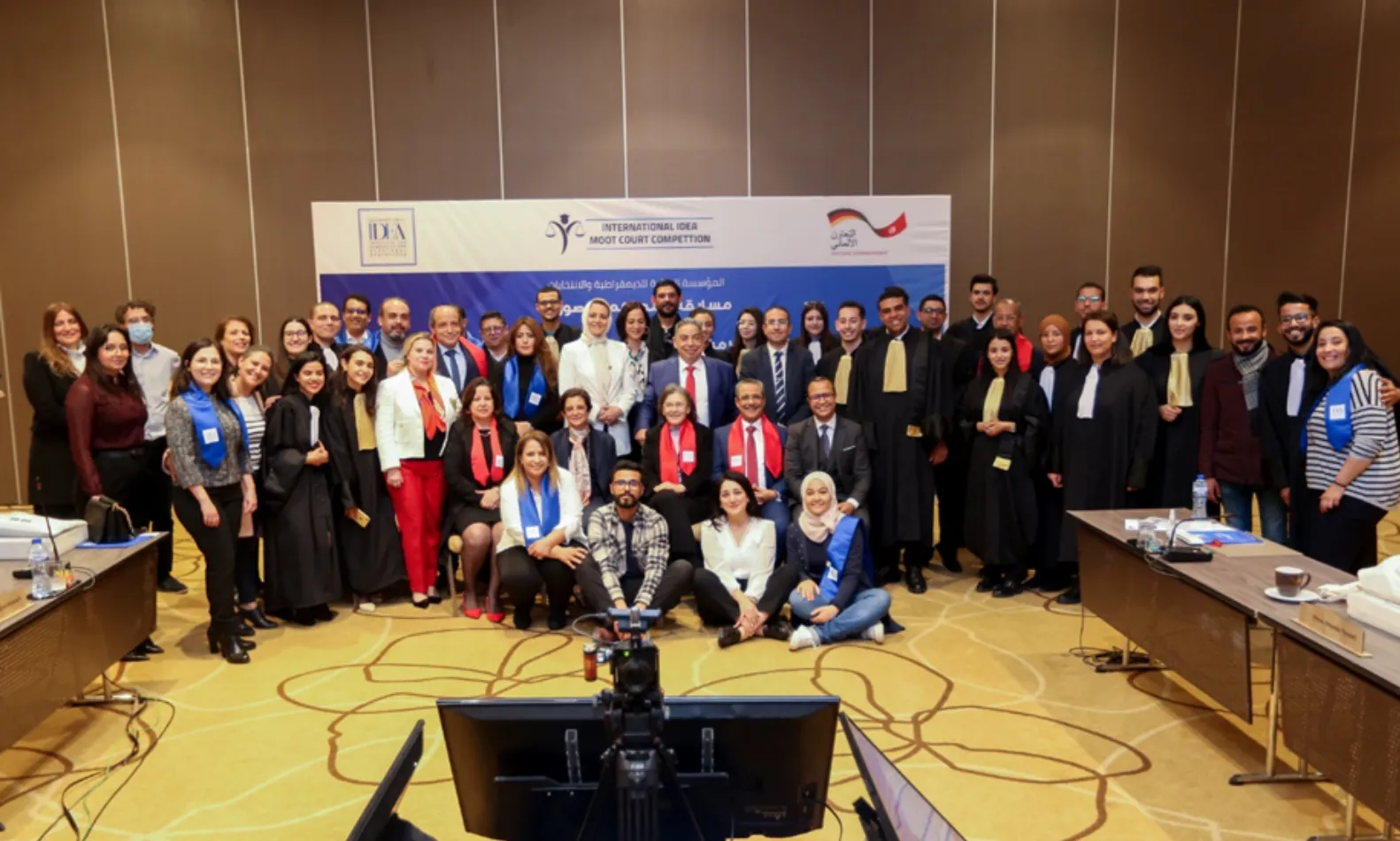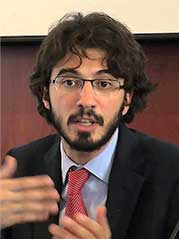
Since 2014, the International Institute for Democracy and Electoral Assistance has been working with Tunisian institutions and civil society to promote the implementation of proportionality in the country.
Proportionality is a legal principle (originally from Germany) which can be used to determine whether limitations on individual rights are legitimate in a democratic society or not. Proportionality has spread throughout many jurisdictions across the world, including countries in Africa, Canada, Latin America, Asia and elsewhere. Tunisia adopted proportionality explicitly in Article 49 of its 2014 Constitution and more recently in Article 55 of its 2022 Constitution.
Since 2015, International IDEA has implemented a series of projects and activities that are designed to promote the use of proportionality throughout state institutions. That work intensified in 2019, thanks to financial support from the Federal Republic of Germany’s Federal Foreign Office. Through these projects, a number of important and innovative activities were implemented, including but not limited to the following:
- For years, International IDEA has organised peer-to-peer sessions through which Tunisian judges, lawyers and other practitioners have been able to engage with their professional counterparts from other jurisdictions. Practitioners (including constitutional court members and others) from countries such as Germany, South Africa, Kenya, Canada and others have travelled to Tunisia for this purpose. These exchanges allow practitioners to discuss how their own national jurisdictions dealt with similar factual circumstances (including for example, how jurisdictions dealt with and applied proportionality to restrictions on movement pursuant to the spread of COVID-19). These sessions were a crucial means to allow Tunisian practitioners to build their knowledge and to build relationships with counterparts who are facing similar changes elsewhere.
- Every year, International IDEA organised a moot court competition on proportionality for postgraduate law students. Students are grouped together in teams representing all the universities in the country, and are asked to litigate a fictitious case in written submissions as well as orally in front of a panel of judges. The competition is organised in several rounds with the final taking place in Tunis. The yearly event has contributed to a sprouting of student-led moot court associations in the country, which International IDEA has welcomed and encouraged to develop further.
- International IDEA has worked with Tunisian courts and others to establish an online database of court decisions relating to proportionality – see https://tanassob.org/. The database is now already online and includes hundreds of court decisions in which proportionality was applied. It also includes dozens of decisions from foreign courts which have been translated into Arabic and that relate to issues that are relevant to Tunisia. Finally, the database also brings together all the publications that International IDEA has produced on proportionality in Tunisia, as well as relevant legislation and constitutional texts. International IDEA has also worked with Tunisia’s Court of Cassation to develop its own website and make the Court’s own decisions relating to proportionality more easily available to users.
- International IDEA has also produced sector specific manuals for different communities on how proportionality can and should be applied in practice. For example, manuals were developed for administrative court judges, ordinary court judges, the security sector, lawyers, local government officials, the parliament and others. In addition, a full-length compendium is also being produced that brings together all the leading court decisions (with commentary on each case) on proportionality in a single publication. As noted above, all of these publications are available for free and are available on this website as well as on https://tanassob.org/.
- International IDEA has trained and developed training materials on proportionality for thousands of members of the legal profession and others, including lawyers, academics, researchers, judges, local government officials, ministry officials, parliamentary staff and others. Materials that were produced include a master class that discusses how proportionality should be applied in theory and also introduces many practical exercises on how it should be applied in practice.
- Finally, International IDEA has created networks of specialists and practitioners that have an interest in proportionality in Tunisia. A working group on proportionality was established. An observatory was established, through which members of the two different branches of the judiciary debate how proportionality should be applied, and issue reports on how proportionality has been applied in practice. The Observatory's reports on the ordinary courts, the administrative courts, and municipalities are freely available online.
As noted above, the full range of activities that International IDEA has implemented are too long to list in this format. Crucially, the work has had a very important impact on judicial practice. International IDEA noted that the number of explicit references to proportionality in court decisions has more than quadrupled since International IDEA’s two main projects started in 2019. In addition, many of the judges that authored these judgements have been involved in International IDEA’s work, either as members of the working group, of the observatory or through some other means.
For additional information relating to this work, interested parties are invited to contact Zaid Al-Ali (zalali@idea.int), Amel Mejri (a.elmejri@idea.int) or the Tunis office more generally (Tunis@idea.int). International IDEA is planning to continue its work to support the implementation of proportionality in Tunisia and elsewhere in years to come.




